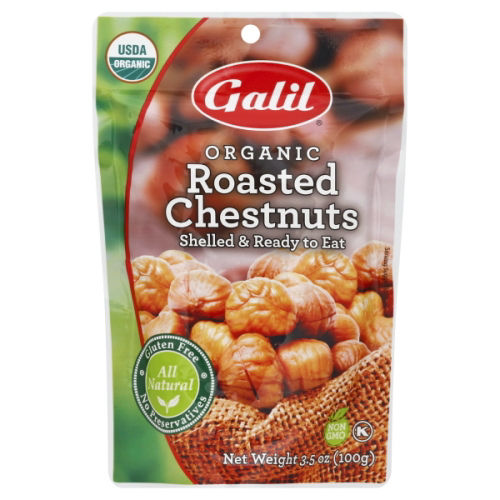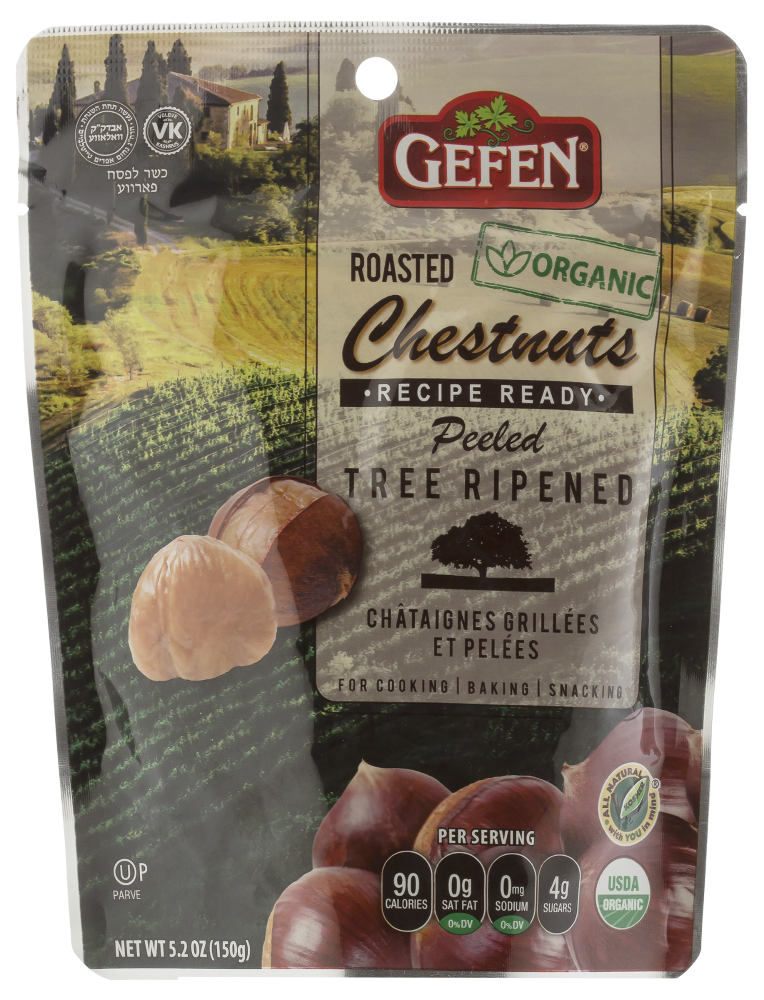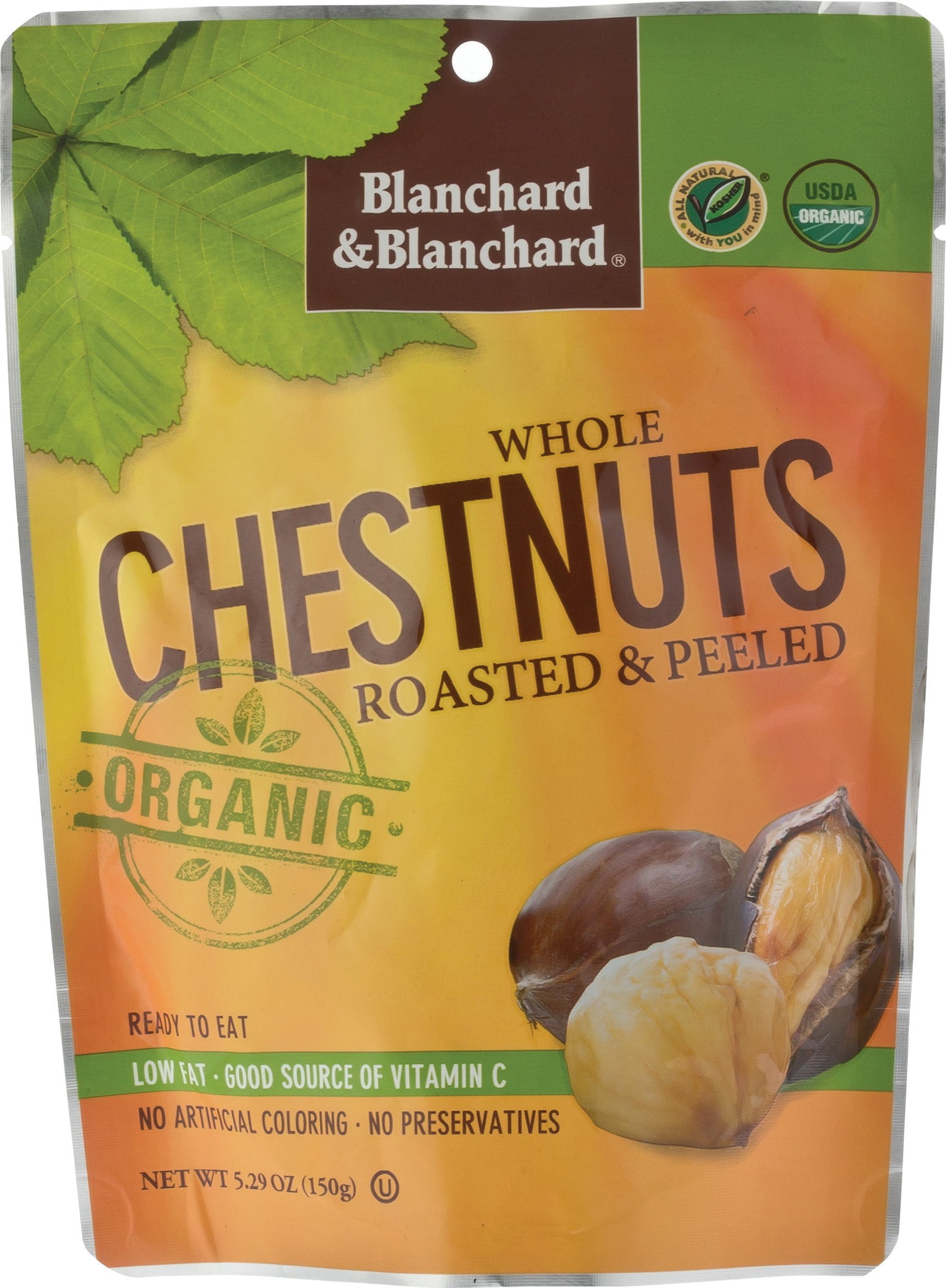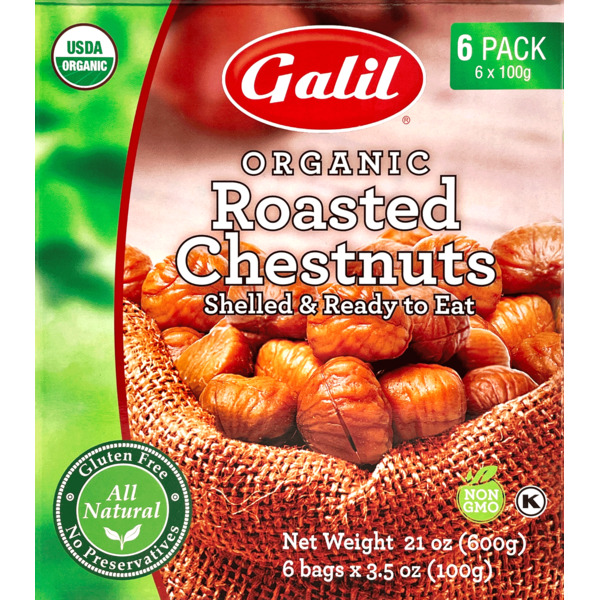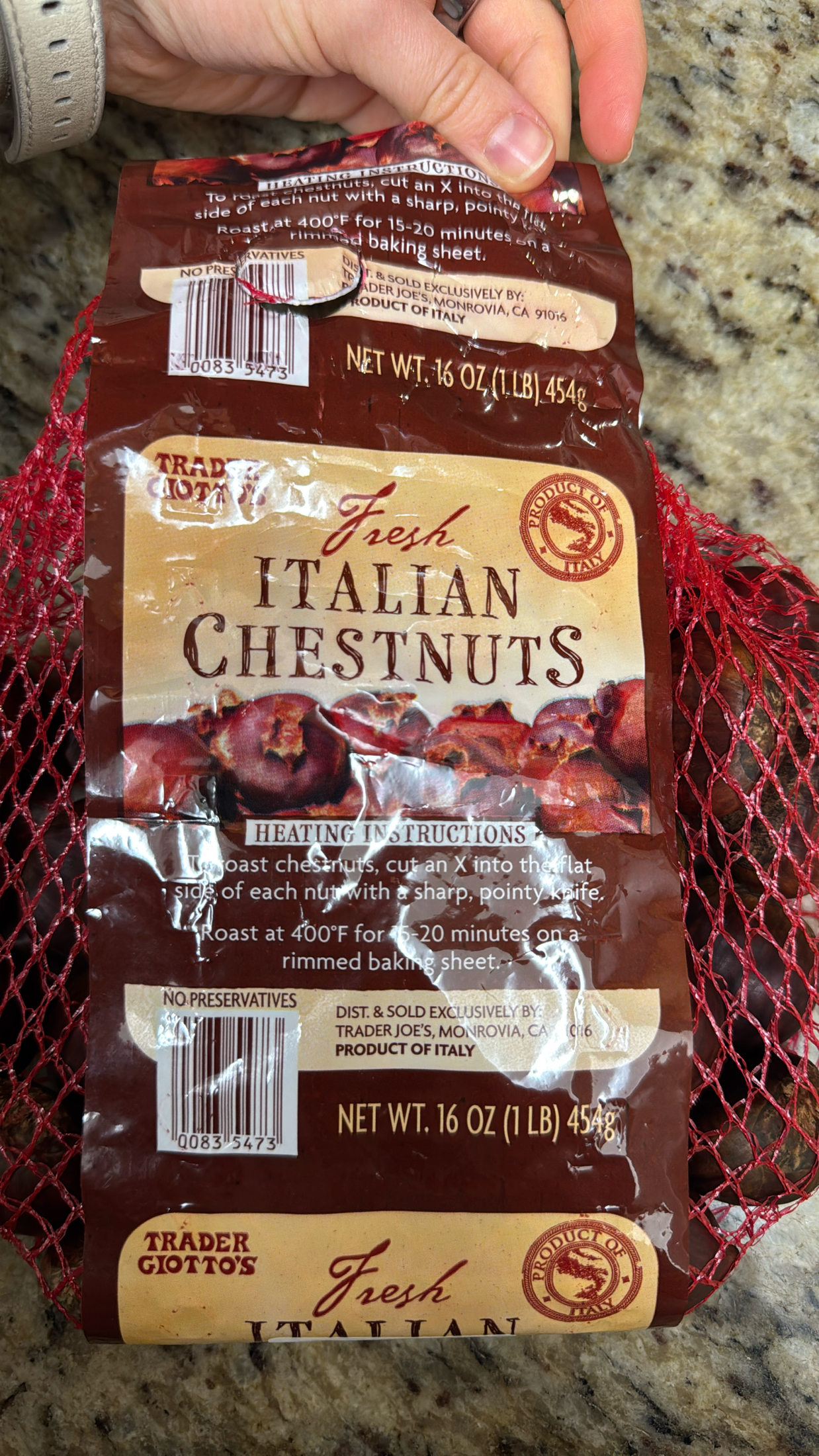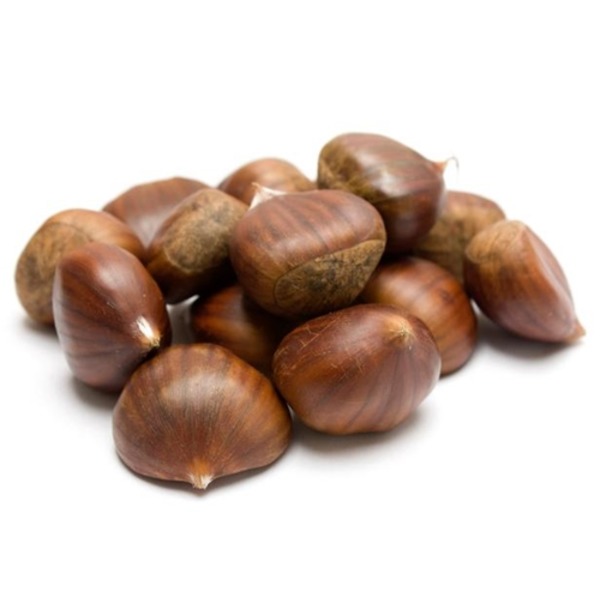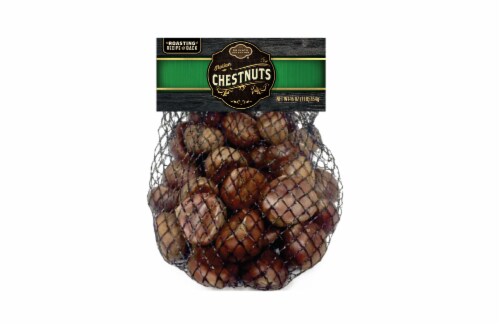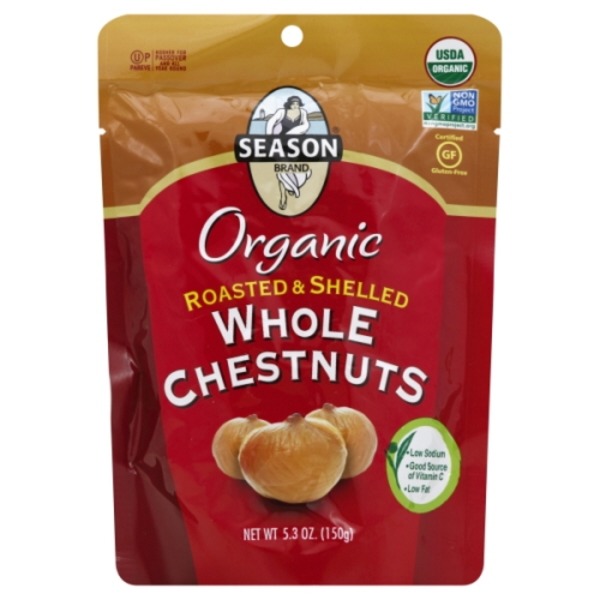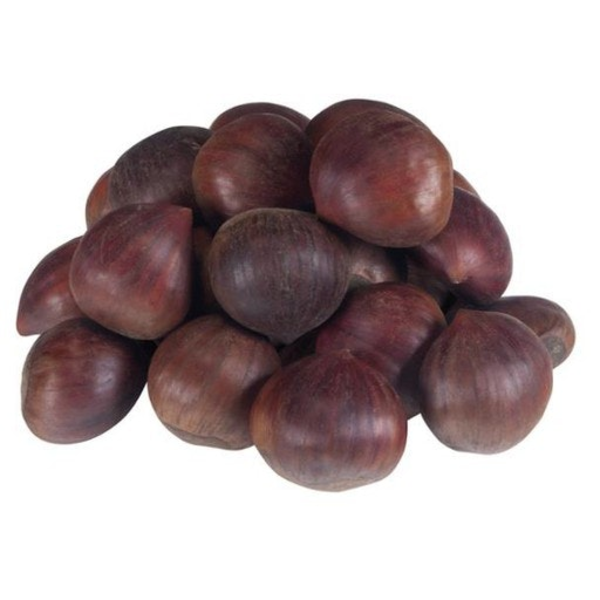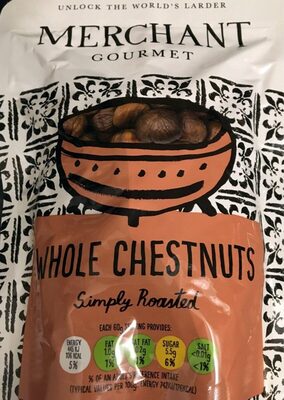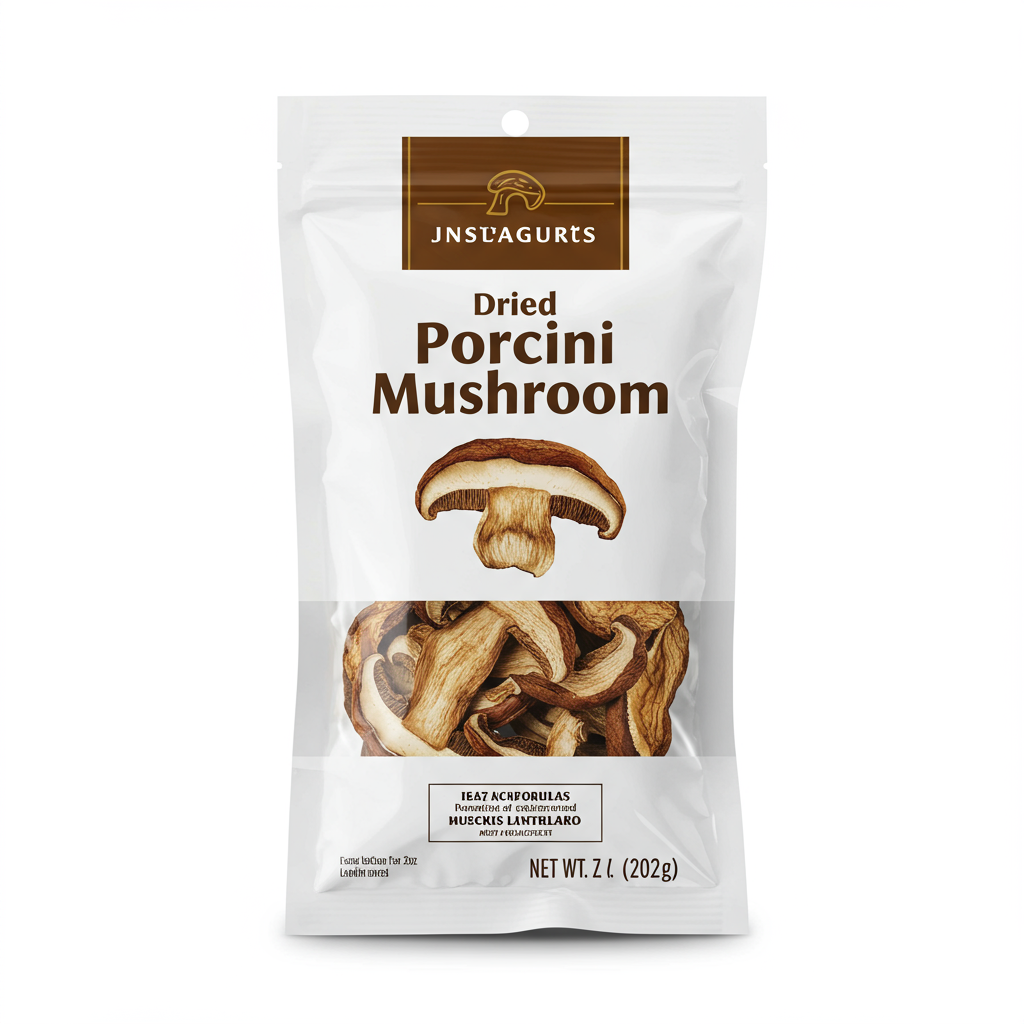SIDE DISHES
MAIN DISHES
DESSERTS
Chestnuts
Chestnuts are a versatile and nutritious nut, commonly found in winter markets and associated with festive holiday celebrations. Encased in a tough, spiky shell, these nuts offer a creamy, slightly sweet, and nutty flavor when cooked, making them popular for both sweet and savory dishes.
As a versatile ingredient, chestnuts can be roasted, boiled, pureed, or even candied to add their unique flavor and texture to various recipes. Not only do chestnuts serve as a delicious treat, they also provide a good source of vitamins, minerals, and dietary fibers, adding a nutrition-packed component to a home cook's repertoire.
91%
CARBS
5%
FAT
5%
PROTEIN
137 Chestnuts Products
Galil Chestnuts, Organic, Roasted
Gefen Chestnuts, Organic, Roasted, Peeled
Blanchard & Blanchard Organic Chestnuts Whole Roasted & Peeled Pouch
Galil Organic Roasted Chestnuts | Shelled | Ready to Eat Snack | Gluten Free, All Natural, 100% Vegan, No Preservatives | Great for Snacking, Baking, Cooking & Turkey Stuffing |
Trader Giotto's Fresh Italian Chestnuts
Fresh Chestnuts
Private Selection® Chestnuts
Season Brand Organic Whole Chestnuts Roasted & Shelled
Produce Chestnuts
Merchant Gourmet Whole Chestnuts
Chestnuts Are Frequently Used With
Chestnuts FAQ
Cooking with chestnuts can sometimes be a challenge for beginners mainly due to their hard outer shell that can be tough to crack. To get the most out of chestnuts, creating an 'X' on the flat side of the nut with a sharp knife before roasting or boiling will allow heat to penetrate into the nut and make it easier to peel. Moreover, peeling chestnuts while warm will make the task easier. roasting chestnuts in the oven or on an open fire is the most traditional way to cook these nuts, however, boiling them is an excellent method too, maintaining their moisture and flavor.
Less known tip includes using roasted and ground chestnuts as a gluten-free flour alternative. This versatile ingredient can be featured in a variety of dishes, including desserts, soups, stuffings, sauces, and even roasted on their own.
How do I prepare chestnuts for cooking?
Do I need to peel chestnuts before cooking?
Why do my chestnuts explode when I cook them?
What is the best way to cook chestnuts?
How do I make chestnut puree at home?
Can I use chestnut flour in place of regular flour?
What kind of dishes can I make using chestnuts?
Can I eat raw chestnuts?
How do I know if my chestnuts are cooked?
Why are my chestnuts bitter after roasting?
Expiration & Storage Tips
When does chestnuts expire?
Unopened chestnuts in their shells can last for a week at room temperature, or up to one month if refrigerated. Once the shells are opened, the raw nutmeat should be used within 2-3 days if kept at room temperature, or up to a week if refrigerated. Cooked chestnuts in or out of their shells, keep well for about three days in the refrigerator. Once frozen, chestnuts retain their quality for 9-12 months.
How do you tell if chestnuts is bad?
If chestnuts have gone bad, you'll notice a number of signs. Fresh chestnuts should feel heavy and firm, and their shells should be bright and shiny. If they feel light, rattle in their shell, or their shells are dull or mottled, they're likely past their prime. Inside, the nutmeat should be creamy white - if it's discolored or has a foul or sour smell, it's best not to consume them.
Tips for storing chestnuts to extend shelf life
• Store unopened chestnuts in a cool, dry place, away from heat and sunlight. A cellar or a pantry is ideal.
• Once you've opened the shells, it's best to refrigerate the chestnuts in an airtight container.
• You can also freeze raw, shelled chestnuts. To do this, simply seal them tightly in a freezer bag or container. Allow the chestnuts to thaw in the refrigerator before using.
• Cooked chestnuts should be refrigerated and used within three days for best flavor and texture.
EXPIRES WITHIN
5 - 7
MONTHS
Substitutes
Health Info
Macros
12g
CARBS
0g
FAT
0g
PROTEIN
Allowed on these diets
LOW FAT
HIGH CALCIUM
VEGETARIAN
KETO
PALEO
WHOLE 30
MEDITERRANEAN
LOW CARB
VEGAN
LACTOSE FREE
GLUTEN FREE
Contains these allergens
TREE NUTS

